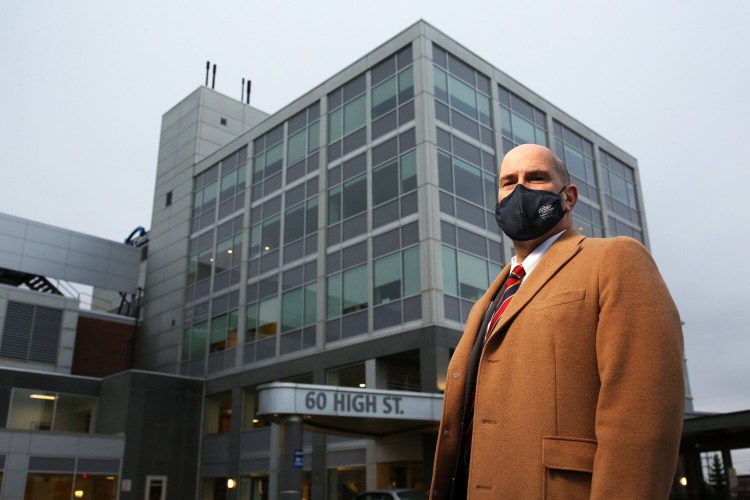Scientists from around the world are studying COVID-19, fueled by a torrent of research funding as governments make solving the virus a top priority. For doctors, the rapid pace of research generates a staggering volume of new information that must be absorbed and analyzed.
Dr. John Alexander, chief medical officer at Central Maine Healthcare in Lewiston, said the hospital has a clinical team that keeps up on the latest research for multiple diseases. Lately, they have been dealing with a flood of novel coronavirus research. The team often meets daily, sometimes more than once a day.
“The research is evolving quickly, but they live, breathe and sleep clinical research,” Alexander said. “This is a disease we only began learning about 9-10 months ago.”
As an example of the rapid pace, so much money is flowing into vaccine research that vaccine development, which normally takes three to five years or longer, is taking place much more quickly without any scientific shortcuts. A vaccine could be approved as soon as later this month, with the first shots given by the end of the year. That would be less than a year after the pandemic started in the United States, a previously unheard-of timeline.
On the treatment side, in addition to scholarly medical journals, social media groups discuss the latest research, and the internet offers many corners where scientists summarize and delve into the latest research.
At Brief19, a Twitter account on COVID-19 research run by a group of doctors and scientists, daily updates plumb the intricacies of research papers. In the latest posting, scientists looked at research in the Journal of the American Medical Association discussing “Fluvoxamine vs Placebo and Clinical Deterioration in Outpatients With Symptomatic COVID-19.” The upshot is that in this small pilot study, SARS-CoV-2 outpatients with mild illness who took fluvoxamine – a selective serotonin reuptake inhibitor approved for obsessive compulsive disorder and also used as an anti-depressant – had a lower likelihood of clinical deterioration 15 days later.”
In other words, some light bedtime reading.
Scientific knowledge advances so quickly that one of the podcasts published by Brief19 this spring carried a warning that said, “If you are listening to these more than a few days in the future, please beware that information may have changed and check subsequent episodes.”
Dr. David Seder, chief of critical care at Maine Medical Center, said a team of hospital doctors are frequently reading the latest information and sharing the studies with one another.
“You’re constantly reading to make sure you’re up to date, because research is constantly evolving,” Seder said. “COVID-19 is an extreme example of this.”
Send questions/comments to the editors.



